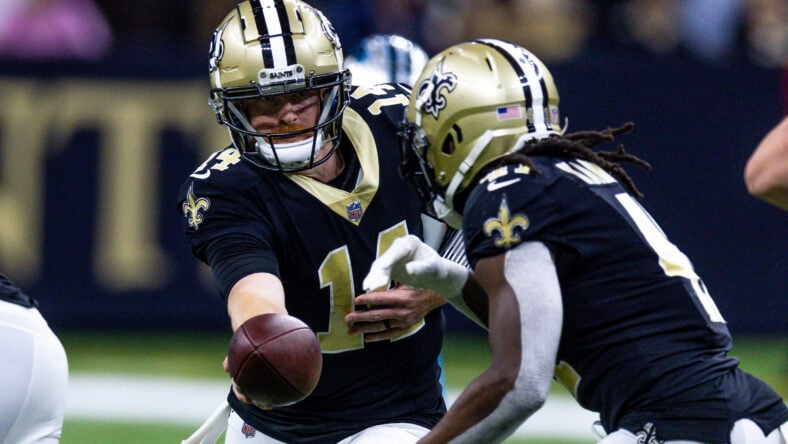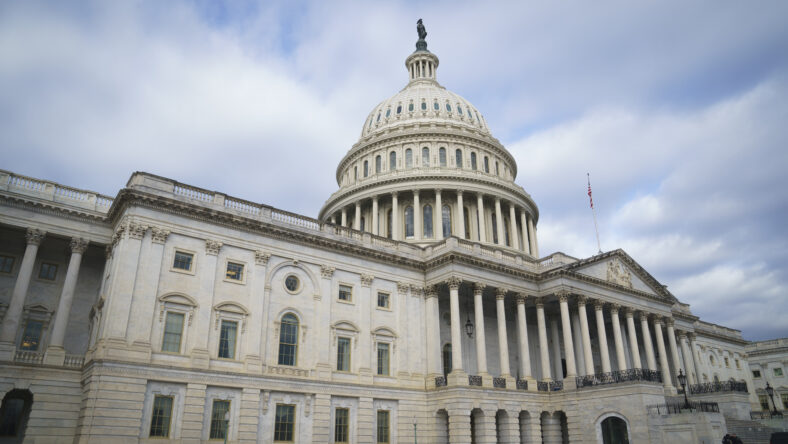Texas Judge Reminisces of Zeke Case and Questions NFL’s Fairness in La’el Collins Case as League Fights to Keep Final Say Over Player Discipline
La’el Collins faced off against the NFL in Federal Court in Texas today in a dispute over whether Collins’ five game suspension for the violation of the NFL’s substance-abuse policy should be overturned so he can take the field again. Many of the legal arguments were reminiscent of the Ezekiel Elliott case, and in fact, the Judge drew comparisons and made references to it multiple times in the hearing.
By way of background, Collins was previously placed in the NFL substance abuse program for a positive drug test. As a result, he was repeatedly drug-tested over several years. According to Mr. Collins, he was tested over 180 times.
The NFL, says he missed seven tests for various reasons. As a result, the league suspended Collins for four games. In the appeals process, his suspension was reduced to two games. Unsatisfied with the two-game suspension, Collins appealed to an arbitrator to eliminate the suspension entirely.
At the arbitration, the NFL informed the arbitrator that Collins had been previously suspended for four games for prior substance-abuse issues. The NFL also argued that Collins attempted to bribe an NFL testing employee to discontinue future tests. The NFL argued that this attempted bribe warranted an enhanced suspension. The arbitrator agreed with the NFL and issued a five-game suspension. Collins filed suit seeking a temporary restraining order to halt the suspension.
Collins argued that the NFL‘s five game suspension is inappropriate because it was procured by the NFL engaging in fraud. Collins contends that the NFL falsely informed the arbitrator that he had previously been suspended for four games and should thus get a longer suspension this time.
At the hearing before Judge Mazzant, the parties agreed that Collins had never served a four-game suspension, but he had been previously assessed a four-game suspension. In a letter dated July 14, 2020, the NFL accepted a penalty payment in lieu of requiring Collins to serve the four-game suspension, and the NFL agreed that it would not use the four-game suspension in any future disciplinary actions against him.
However, in the arbitration, the NFL informed the arbitrator about the prior four-game suspension and argued that Collins’ alleged attempt to bribe a drug testing official should result in an enhanced suspension. The arbitrator agreed and issued a five-game suspension.
Collins’ attorneys argued that the NFL’s use of the non-existent four-game suspension in violation of the agreement not to use it constituted fraud and should be overturned. Collins’ reps also argued that the fifth game suspension based on the alleged bribery was also inappropriate because nothing in the NFL’s rules allowed for such additional discipline.
At the hearing, Judge Mazzant questioned the attorneys on their beliefs over how much power he had judicially to review an arbitrator‘s award of discipline against an NFL player. Remember, in the Ezekiel Elliott case, Mazzant took the position that he could review the NFL‘s disciplinary decisions to determine if they complied with fundamental fairness.
In 2017, the NFL and Cowboys star Ezekiel Elliott battled in this same court, before Mazzant, over whether Elliott‘s suspension for domestic violence allegations was warranted under the NFL’s policies. Mazzant ruled that the NFL‘s arbitration policy required “fundamental fairness” to the accused player and the NFL‘s policy did not afford Elliott such fairness. He then overturned Elliott’s suspension. His decision was later reversed by the Fifth Circuit Court of Appeals on procedural grounds. But the Court of Appeals did not disturb Mazzant’s ruling that the NFL’s arbitration awards must be fundamentally fair.
Despite this, the NFL attorneys took the position today that the court cannot review the arbitrator’s decision, even for fundamental fairness violations. In fact, the NFL took the position that Judge Mazzant could not review the arbitrator’s decision in Collins’ case except in extraordinary circumstances that are not at issue in this case.
Mazzant clearly disagreed with the NFL‘s position that he had no ability to overturn an arbitrator’s award if it is fundamentally unfair. He questioned: what is the line between fundamental fairness and fundamental unfairness? Mazzant clearly had problems with the use of the prior four-game suspension as a basis for Collins’ suspension, and he also questioned whether the NFL had any authority to impose additional discipline based on the alleged bribery of a testing official.
The NFL rules specifically outline when a drug-related suspension can be enhanced. All of those rules involve the altering of actual drug test results which did not happen here. Mazzant appeared uncomfortable with the NFL‘s position that Mr. Collins’ alleged bribery could lead to an enhanced suspension without any textual basis in the NFL rules.
On the other hand, Mazzant repeatedly questioned Mr. Collins’ lawyers about the extent of his ability to review an arbitrator‘s decision. He emphasized that the law severely limits his ability to review arbitration awards, especially in the area of labor discipline. Mr. Collins’ lawyers argued that wherever the line exists for the review of the NFL’s arbitration decisions, Mr. Collins’ suspension crosses that line and should be overturned.
At the end of the hearing, Mazzant questioned Mr. Collins’ lawyers about whether he could play this Sunday even if he reinstated him. Collins’ lawyers eventually had to concede that Collins probably would not play this weekend regardless of the decision. It was apparent that Mazzant was trying to gauge the urgency of his ruling. Mazzant then told the parties that he would take the matter under advisement. Because a ruling will not impact this weekend’s game, Mazzant will probably not rule until sometime next week.
A source familiar with the case, said it’s unlikely a ruling will happen before Sunday and even if it does, Collins is likely not taking the field.
Read more about Collins’ case and the allegations below, including about how Dak Prescott defended him.
Facing bribery allegations, La’el Collins teammate Dak Prescott comes to his defense
Categorized:The Latest Breaking News LOJ Exclusives NFL



